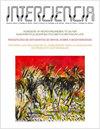大学在知识社会和全球化中的作用:来自智利的证据
IF 0.4
4区 综合性期刊
Q4 ECOLOGY
引用次数: 3
摘要
从概念上讨论了大学在知识社会和全球化背景下的角色。从这个角度来看,知识经济、技术融合和全球化对大学提出了本质要求。拟议的角色主要与人类本科和研究生资本形成、创造先进知识和与环境的联系有关,以促进公平和领土发展。最后,对53所智利大学参与的机构认证过程进行了实证应用,发现84.91%的大学部分符合模型中为这些机构在知识和全球化社会中所指出的一个或多个角色;9.43%完全符合所提出的每一个角色;15.09%的人在履行这些大学角色中的任何一个方面都没有达到令人满意的质量水平。本文章由计算机程序翻译,如有差异,请以英文原文为准。
THE ROLE Of UNIVERSITIES IN THE kNOwLEDGE SOCIETY AND GLOBALIZATION: EVIDENCE fROM CHILE
SUMMARY The roles of universities in the context of the knowledge society and globalization are discussed conceptually. In this perspective, there are essential requirements for universities, which emerge from knowledge economy, technology convergence, and globalization. The proposed roles are primarily associated with human undergraduate and graduate capital formation, the creation of advanced knowledge and linkages with the environment to foster equity and territorial development. Finally, an empirical application of the model was applied in the case of 53 Chilean universities participated in and institutional accreditation processes, where it is found that 84.91% of the universities analyzed complies partially with one or more of the roles indicated in the model for such institutions in the society of knowledge and globalization; 9.43% fully complies with each and every one of the roles proposed; and 15.09% do not comply with satisfactory levels of quality in the fulfillment of any of these university roles.
求助全文
通过发布文献求助,成功后即可免费获取论文全文。
去求助
来源期刊

Interciencia
综合性期刊-生态学
CiteScore
0.80
自引率
25.00%
发文量
1
审稿时长
4-8 weeks
期刊介绍:
Interciencia is the monthly multidisciplinary publication of the INTERCIENCIA Association. It is dedicated to stimulate scientific research, its humanitarian use and the study of its social context, specially in Latin America and the Caribbean and to promote communication between the scientific and technological communities of the Americas.
Interciencia has been published uninterruptedly since 1976. Its Founding Director, Marcel Roche (endocrinologist and sociologist of science) was editor until 2008, and thereafter Miguel Laufer (neurobiologist) has been in charge. It has been included since 1978 in the Science Citation Index and other international indexes, and since 2008 it maintains an open access electronic version with material from 2005 onwards.
The priority areas of the journal, without exclusion of other areas, are Agronomy, Arid Lands, Food and Nutrition, Biotechnology, Ecology and Environment, Energy, Innovation and Technology Transfer, Marine Resources, Non-renewable Resources, Science Education, Science Policy, Study and Sociology of Science, and Tropical Forests.
Interciencia publishes in Spanish, Portuguese and English research and review articles, communications and essays, all of which are subjected to peer review. Additionally, it includes non-refereed sections such as Editorial, Letters to the Editor, Open Town Hall, Book Reviews and Upcoming Events.
All the material submitted to the journal for publication and accepted by the Editorial Committee in view of its quality and pertinence is subjected to review by peer specialists in the corresponding fields of knowledge. Neither the INTERCIENCIA Association, nor the journal or the institutions to which the authors belong carry responsibility for the contents. Signing authors are responsible for the material published under their names.
 求助内容:
求助内容: 应助结果提醒方式:
应助结果提醒方式:


